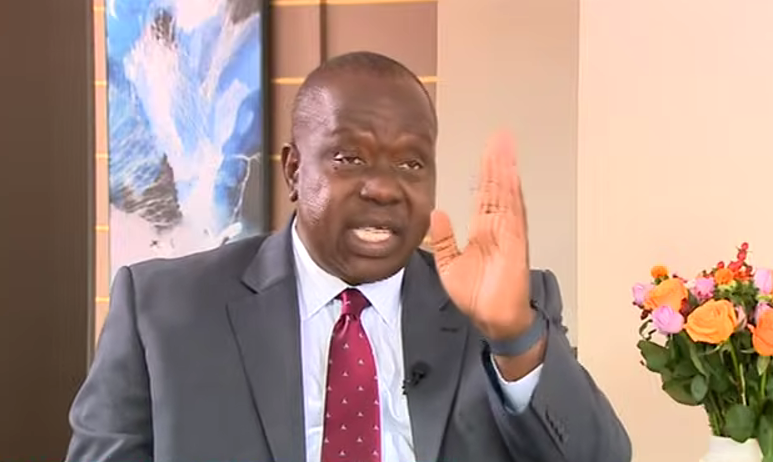 Fred Matiang'i speaking on Citizen TV on July 1, 2025. /SCREENGRAB
Fred Matiang'i speaking on Citizen TV on July 1, 2025. /SCREENGRABPresidential hopeful Fred Matiang’i has remained non-committal about the political party he will use in his bid to unseat President William Ruto in the 2027 General Election.
Speaking on Citizen TV on Tuesday night, the former Interior Cabinet Secretary said he is still consulting with like-minded leaders from various political parties before settling on a political vehicle for his campaign.
He noted that it would be premature to commit to a particular party at this stage without first considering the views of Kenyans.
“I think if I made a choice now and stuck to one political party, I will disadvantage others with whom I’m having discussions,” he said.
Matiang’i emphasised that the conversation will involve compromise and collaboration, revealing that his bid will not be under a single party, but rather a coalition of parties.
“The reality is that we chose democracy and we have many political parties. In Kenya, we have over 89 political parties and that’s how Kenyans want to organise their politics for the time being.”
He acknowledged that some parties, such as the former ruling Jubilee Party and UPA, have claimed him and expressed willingness to back him as their candidate.
However, he clarified that such endorsements are part of ongoing discussions.
“In fact, this afternoon I’m meeting another political party that is asking whether we can work together, and I have been asked this by seven or eight political parties.”
“It’s flattering that you have political leaders—so many political leaders—sitting down in their executive committees and saying maybe Fred Matiang’i should be our candidate even before I ask them. I don’t want to close the door on anyone; I want to have very comprehensive, inclusive, exhausting discussions with everyone, then we come together and work on a coalition.”
Matiang’i’s evolution from a technocratic Cabinet Secretary to a serious contender for the 2027 presidency is built on his reputation for discipline, reform, and coalition-building.
While critics have accused him of heavy-handedness and overly forceful enforcement tactics, he, unlike President Ruto, has never won a popular elective seat.
This marks his first attempt at elective politics, and his key challenge will be to win over a broader, cross-ethnic electorate while addressing concerns about his democratic credentials and commitment to inclusivity.












